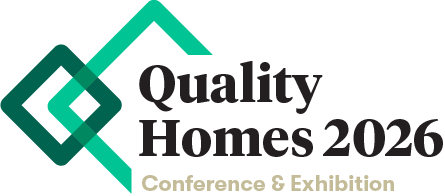8 August 2024
In the realm of social housing, ensuring high-quality maintenance and repair services is paramount to tenant satisfaction, especially in light of the recently implemented Tenant Satisfaction Measures.
As the social housing sector’s most trusted data-analytics partner, Mobysoft leverages Artificial Intelligence (AI) and Machine Learning (ML) to revolutionise the way housing providers manage repairs and maintenance. Our innovative RepairSense platform exemplifies how AI can foresee and forestall maintenance issues, significantly enhancing the quality of homes and resident satisfaction. This post explores the journey from data collection to actionable AI insights and highlights the transformative impact of AI-powered platforms on the sector’s approach to repairs and maintenance.
Preparing for AI and Getting the Data Right
The foundation of any AI-driven solution lies in meticulous data preparation. For AI to generate reliable predictions, it requires a comprehensive and well-structured dataset. In the context of social housing, this involves collecting detailed information about each property, including historical repair records, tenant complaints, and environmental conditions.
Mobysoft emphasises the importance of accurate and extensive data collection. RepairSense utilises advanced data mining techniques to extract valuable information from various sources. This data is then cleaned, organised, and integrated into a unified database, ensuring it is ready for analysis. By preparing high-quality data, housing providers can ensure that the AI models developed will be both robust and accurate.
Developing Platforms to Build New Models
With the data in place, the next step is to develop platforms capable of building and refining AI models. RepairSense stands out in this regard, employing cutting-edge ML algorithms to analyse and interpret repairs data. The platform’s ability to mine data, identify patterns, and make predictions is a testament to Mobysoft’s expertise in AI technology.
RepairSense uses various machine learning techniques to understand ongoing issues with faults and repairs. By analysing past repair records and current complaint data, the platform can identify properties with recurring problems and suggest preventive measures. This proactive approach not only reduces repair demand but also minimises the likelihood of future complaints, fostering a quality-first culture within housing associations.
Using AI to Predict Complaints
One of the most significant advantages of AI in social housing maintenance is its ability to predict complaints before they arise. RepairSense excels in this area by providing actionable insights that enable housing providers to address potential issues proactively.
Identifying and Reducing Repeat Repairs
By analysing historical repair data, RepairSense can identify patterns of repeat repairs. These insights allow housing providers to tackle the root causes of issues rather than applying temporary fixes. This not only improves the quality and sustainability of repairs but also enhances tenant satisfaction by reducing the frequency of maintenance visits.
Enabling a Quality-First Culture
AI-driven platforms like RepairSense promote a quality-first culture by prioritising high-quality repairs over quick fixes. By providing accurate forecasts and Key Performance Indicator (KPI) reports, the platform ensures that repairs are carried out efficiently and to a high standard. This shift towards quality-focused maintenance ultimately results in fewer complaints and increased tenant satisfaction.
Minimising Complaints and Disrepair
RepairSense’s ability to flag properties where landlords have failed to keep up with their processes is a game-changer. By notifying housing associations and trades operatives when remedial work is required, the platform helps prioritise critical repairs, minimising complaints and disrepair. This proactive approach ensures that potential issues are addressed promptly, preventing them from escalating into major problems.
Addressing Damp and Mould Issues
Damp and mould are common issues in social housing that can lead to serious health problems for tenants. RepairSense tackles this problem with a three-phase approach. Firstly, it raises a case based on tenant complaints, creating a comprehensive overview of events at the property over a specified timeframe. Secondly, it flags properties where work is overdue, allowing landlords to prioritise necessary repairs. Finally, the platform uses historical data and modelling to predict properties at risk of damp and mould with up to 90% accuracy. This enables housing providers to take preventive measures, ensuring a healthier living environment for tenants.
The Bottom Line
Mobysoft’s RepairSense platform demonstrates the immense potential of AI in enhancing home quality and resident satisfaction. From meticulous data preparation to advanced modelling and predictive capabilities, RepairSense equips housing providers with the tools they need to deliver high-quality, sustainable repairs. By fostering a proactive, quality-first culture, AI has the potential to not only improve the living conditions of tenants but also optimise the efficiency of maintenance operations sector-wide. As AI technology continues to evolve, its role in social housing maintenance will undoubtedly become even more pivotal, paving the way for smarter, more efficient repairs management solutions.
Join Natalie Tuer, Head of Product, Mobysoft, Dominika Phillips-Blackburn, Mobysoft, Rupesh Bhatt, Peabody and Helen Collins, National Housing Federation as they discuss how AI can be used to improve the services of Quality Homes.
Session name: Beyond the data: how can we use AI to improve the service and quality of homes?
Date: Wednesday 16 October
Time: 2:05pm
Dean Quinn
Mobysoft Ltd

